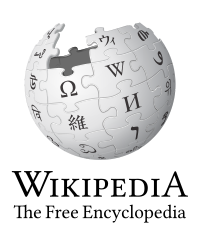
As we blogged last week, the annual Wikipedia fundraising campaign is in progress. One of the best things about the campaign is that many people who generously donate often share their reasons why. Reading through these donor stories is genuinely inspiring and everyone connected to the encyclopaedia can be very proud of what we’ve created.
If you love Wikipedia and want to help then you can make a donation here. If you’re a UK taxpayer your donations are eligible for Gift Aid, too. We are grateful for all your support.
“The story I like to tell is that whilst I had heard of Wikipedia but only looked at it a few times thereafter, when the 2004 Tsunami occurred the day after Christmas, mainstream news organisations (TV, newspapers) were all away from their offices. That day I turned to Wikipedia to try to understand the scale of the event. It was Wiki editors ‘on the ground’ that created the sort of information and coverage usually considered the province of rolling news organisations only. This I now dub my ‘Wiki Epiphany’.”
“Web sites like Wikipedia are invaluable and I felt it my duty to try help even if only a tad.”
“My world has been opened up time and time again by Wikipedia. From studying Detroit and computer programming to finding unbiased information on America’s history, Wikipedia has been a beacon of free speech and information for over ten years. Sometimes, I just sit in awe of the fact that the greatest accomplishment of man was assembled mostly by volunteers, people who just wanted to make the world a better place.”
“It’s made life easier for me and expanded my knowledge by allowing me to more easily find trusted and verified information on the internet. It organizes all the noise out there on the web and gives a great concise to the point fact summary of what I want to know. Thank you and thank you to the millions of volunteer editors. Wikipedia is a necessity in my life and not just a luxury.”
“Wikipedia is a source of unbiased information. The caveats and notes from the editors alert to questionable information. The links within the articles are amazingly helpful and have led me on wonderful information
expeditions.”
“I’d like to thank the entire staff of wikipedia and its editors for my high school graduation.”
“It’s impossible to put in words. I cannot imagine Planet Earth without it [Wikipedia]. It has changed my life forever.”
“My 17 year old son uses you constantly. You have made him a smarter human being.”
“This is one of the best things on the internet. It goes back to the original development of the internet and has remained ethical and true to its origins. There appears to be no discrimination and it is available to everyone at no cost.”
“I am 60 years old and I am still so curious and interested in so many things. Wikipedia gives me reasonable information whenever I may want it.”
“It’s nice to see humanity get together without any external forces for a common good!”
“I am inspired by the high quality of Wikipedia and the high ideals of its founder and its myriad contributors and editors. What a magnificent collaborative human achievement you are building!”
“It has simultaneously answered and given me more questions than I can comprehend. This represents to me what college should be like. Free and collective knowledge by and for all.”
“It is like a gift from the gods of knowledge.”
“I am a teacher and a writer, and I am amazed how often Wikipedia is useful to me. I consider Wikipedia to be one of the great democratic projects maybe ever, and it is one of the reasons why I try to stay optimistic about
the world. Thank you.”
“I extend my heartfelt thanks to the men and women who tirelessly work on keeping Wikipedia the wonderful website it is.”
“My 72 year old life is easier and more fun. I read a lot and look things up all the time, and that is now easy. That itself is fun.”
“My Dad’s addicted to Wikipedia. Seriously. I can’t think of a single day I’ve seen him not go on here at least once. The man craves knowledge, and one blue link leads to another. Soon enough, he has dozens of tabs open leading to a million different things. As I hear quite often, I am my father’s daughter. I was in third period US History today reading the page on Dmitri Kabalevsky during our homework time. I came on here right now to make sure it would be okay to refer to France as Gallia in the book I’m attempting to write. I come on here so many times a day, you wouldn’t even believe. I absolutely love the system you all work so hard to run, and I
hope Wikipedia stays online and banner free for dozens of years to come! You have my full support. 🙂 ”
“100 years ago they said we would have flying cars, instead we got smart phones with access to almost every book ever written, fair trade.”
“When I was a kid, I used to watch ‘Star Trek”. When Captain Kirk had a question asked Mr. Spock and the computer with female voice. Wikipedia is a combination of Mr. Spock and Computer.”
“I have lived in the world without Wikipedia but it was darkish all the time and I never want to live in our world without it again.”
“Wikipedia is like a playground for me. I love you for what you do.”
“‘Look it up'” is what our dad always told us when we asked a question, even if he knew the answer. Back then we ran to the encyclopedia or dictionary; now it’s Wikipedia. Different but the same. And beyond Wikipedia’s being a tool to learn something, it makes me happy to know there are smarties out there, collaborating in this vital, fluid, living system, spreading knowledge. Thank you!”
“I passed my university degree, settled numerous arguments, checked sports stats, researched my great grandfather and just today found out the probable origin of sheep farming! The list goes on… and on…”
“I use Wikipedia to live my life.”
“I, as an ordinary citizen, am able to learn and access information in a way that would make pre-eminent scholars of 3000-odd years fall to their knees and weep with joy and shock.”
“Wikipedia is what the internet can be.”














